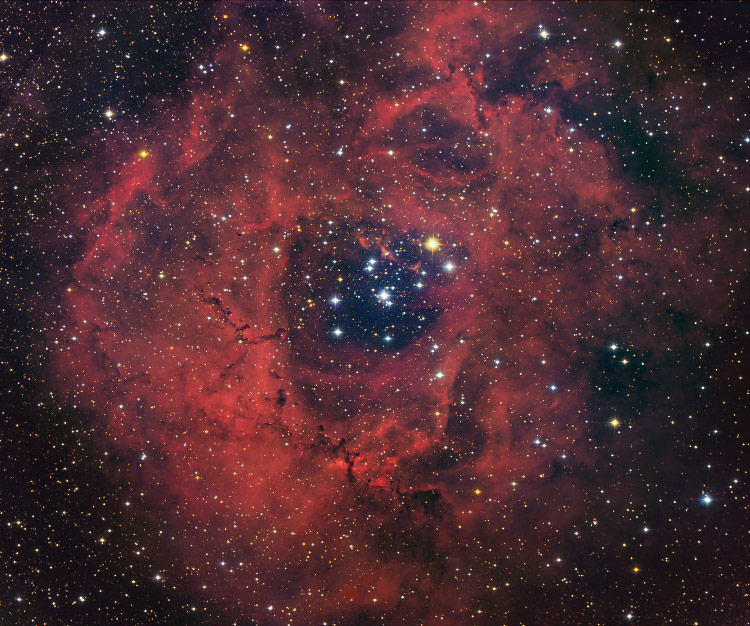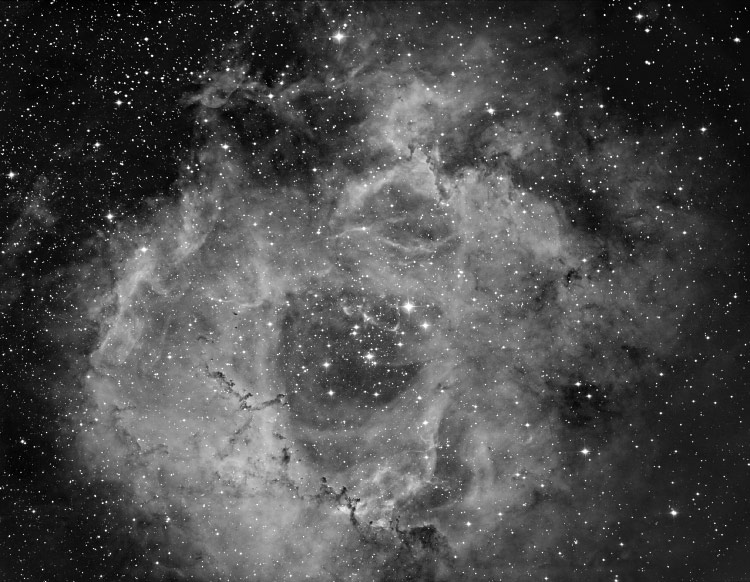Rosette Nebula (NGC 2244, NGC 2237)

Clic here for a 70% close-up (size 1506x1238 467 kB)
About this Image
|
|
The Rosetta Nebula here in higher resolution is a vast cloud of dust and gas in 5000 light years distance, extending over an area of more than 1 degree across.
Its parts have been assigned different NGC numbers: 2237, 2238, 2239, and 2246.
Inside the nebula lies an open cluster of bright young stars designated NGC 2244.
These stars formed about four million years ago from the nebular material and their stellar winds are clearing a hole in the nebula's center, insulated by a layer of dust and hot gas.
Ultraviolet light from the hot cluster stars causes the surrounding nebula to glow.
The brightest of them make the nebula shine by exciting its atoms to emit radiation.
Star formation is still in progress in this vast cloud of interstellar matter;
North is to the left.
Below you find a pure H-alpha image. The H-alpha filtered image pronounces the difference between radiating gas and obscuring dust.
|

Technical Details
|
| Optics |
16" cassegrain in prime focus at f/3
|
|
Mount |
MK-100 GEM |
|
Camera |
SBIG STL-11000M at -30C, internal filter wheel |
|
Filters |
Astronomik H-alpha + RGB |
|
Date |
01 / 15 Jan 2005. |
|
Location |
Wildon/Austria |
|
Sky Conditions |
mag 5 sky, temperature 0 C |
|
Exposure |
Ha:R:G:B = 40:15:15:15 minutes (RGB 5 minute, H-alpha 10 minute sub-exposures), all 1x1. |
|
Processing |
Image aquisition in Maxim DL 4, image calibration, aligning, mean stacking, DDP in ImagesPlus; final tweaking, color balancing in Photoshop;
cropped, size 20/50%; |
